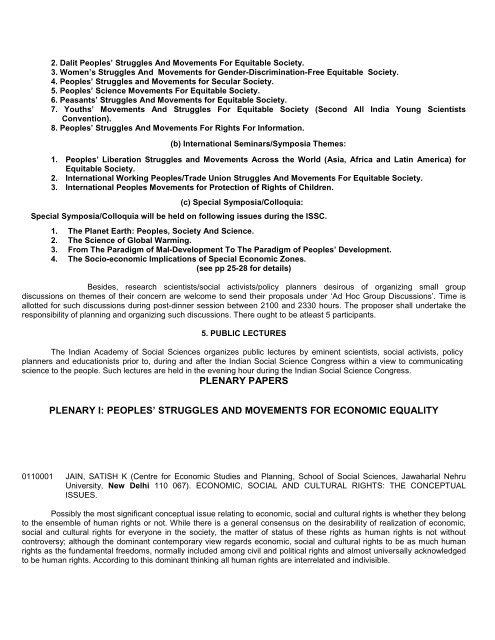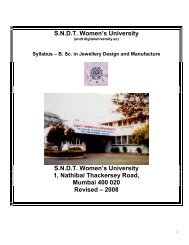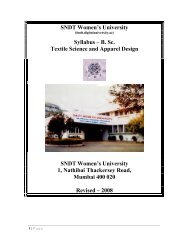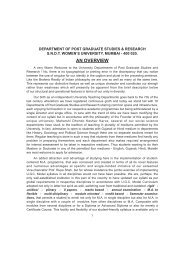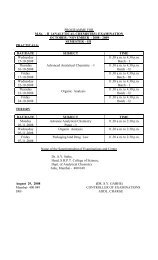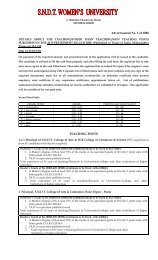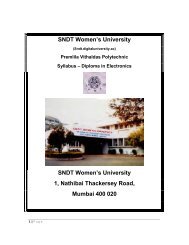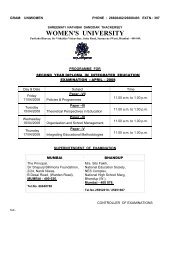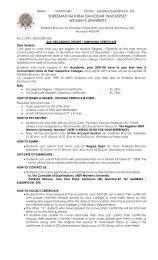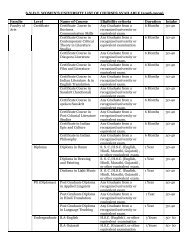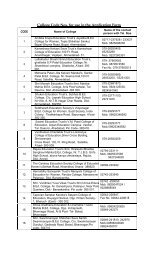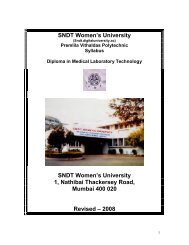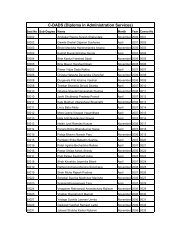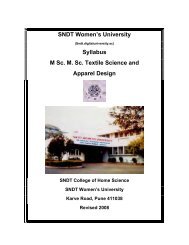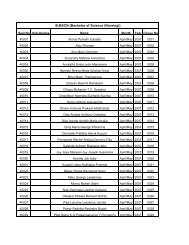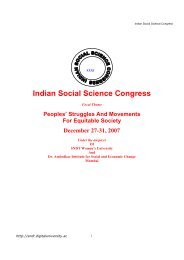XXXI Abstracts Part 1 page 1-189
XXXI Abstracts Part 1 page 1-189
XXXI Abstracts Part 1 page 1-189
Create successful ePaper yourself
Turn your PDF publications into a flip-book with our unique Google optimized e-Paper software.
2. Dalit Peoples’ Struggles And Movements For Equitable Society.<br />
3. Women’s Struggles And Movements for Gender-Discrimination-Free Equitable Society.<br />
4. Peoples’ Struggles and Movements for Secular Society.<br />
5. Peoples’ Science Movements For Equitable Society.<br />
6. Peasants’ Struggles And Movements for Equitable Society.<br />
7. Youths’ Movements And Struggles For Equitable Society (Second All India Young Scientists<br />
Convention).<br />
8. Peoples’ Struggles And Movements For Rights For Information.<br />
(b) International Seminars/Symposia Themes:<br />
1. Peoples’ Liberation Struggles and Movements Across the World (Asia, Africa and Latin America) for<br />
Equitable Society.<br />
2. International Working Peoples/Trade Union Struggles And Movements For Equitable Society.<br />
3. International Peoples Movements for Protection of Rights of Children.<br />
(c) Special Symposia/Colloquia:<br />
Special Symposia/Colloquia will be held on following issues during the ISSC.<br />
1. The Planet Earth: Peoples, Society And Science.<br />
2. The Science of Global Warming.<br />
3. From The Paradigm of Mal-Development To The Paradigm of Peoples’ Development.<br />
4. The Socio-economic Implications of Special Economic Zones.<br />
(see pp 25-28 for details)<br />
Besides, research scientists/social activists/policy planners desirous of organizing small group<br />
discussions on themes of their concern are welcome to send their proposals under ‘Ad Hoc Group Discussions’. Time is<br />
allotted for such discussions during post-dinner session between 2100 and 2330 hours. The proposer shall undertake the<br />
responsibility of planning and organizing such discussions. There ought to be atleast 5 participants.<br />
5. PUBLIC LECTURES<br />
The Indian Academy of Social Sciences organizes public lectures by eminent scientists, social activists, policy<br />
planners and educationists prior to, during and after the Indian Social Science Congress within a view to communicating<br />
science to the people. Such lectures are held in the evening hour during the Indian Social Science Congress.<br />
PLENARY PAPERS<br />
PLENARY I: PEOPLES’ STRUGGLES AND MOVEMENTS FOR ECONOMIC EQUALITY<br />
0110001 JAIN, SATISH K (Centre for Economic Studies and Planning, School of Social Sciences, Jawaharlal Nehru<br />
University, New Delhi 110 067). ECONOMIC, SOCIAL AND CULTURAL RIGHTS: THE CONCEPTUAL<br />
ISSUES.<br />
Possibly the most significant conceptual issue relating to economic, social and cultural rights is whether they belong<br />
to the ensemble of human rights or not. While there is a general consensus on the desirability of realization of economic,<br />
social and cultural rights for everyone in the society, the matter of status of these rights as human rights is not without<br />
controversy; although the dominant contemporary view regards economic, social and cultural rights to be as much human<br />
rights as the fundamental freedoms, normally included among civil and political rights and almost universally acknowledged<br />
to be human rights. According to this dominant thinking all human rights are interrelated and indivisible.


